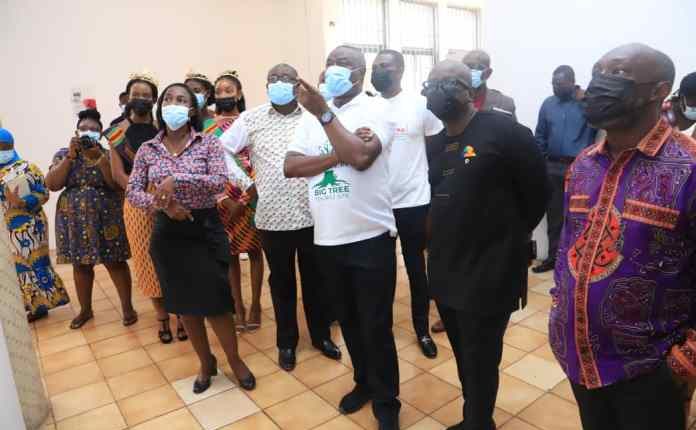The tourism and hospitality sector is set to receive some GH¢55million financial support from government to support its revival from the impact of COVID-19.
The Ghana Enterprise Agency (GEA) in partnership with the Ministry of Tourism, Arts and Culture would be disbursing the funds which forms part of the GEA’s GH¢145 million new round of stimulus package for Small and Medium Enterprises (SMEs).
Minister of Tourism, Arts and Culture, Ibrahim Mohammed Awal, who announced the financial support to stakeholders and leaders of trade associations in the sector said government is keen on reviving the sector and positioning it to take advantage of the numerous benefit it is likely to attract post-COVID-19.
“From next week, we are going to disburse GH¢55 million to support operatives in the sector. They are grants that we are giving to the tourism, arts and culture sector. The essence is to have some firewall around the businesses that have suffered as a result of COVID-19,” he said.
Reports show that the sector has lost over 75 percent of its businesses due to the pandemic, which amounts to some GH¢8 billion.
Chief Executive Officer (CEO) of the Ghana Enterprise Agency, Kossi Yankey-Ayeh, in an interview with the media, confirmed that the GEA would from today open a portal for the players in the tourism sector to apply for financial support under the Ghana Tourism Project.
This would add up to the already opened portal for SMEs to apply for the GH¢145 million new round of stimulus package which targets about 2,000 SMEs as part of the government’s initiative to promote private investments, sustain businesses, create jobs and ensure business innovation, competitiveness and growth to support the economy.
The funds are coming at a time the sector has experienced continuous contraction.
Data published by the Ghana Statistical Service (GSS) show that despite the pandemic-hit economy growing by 3.1 percent in the first quarter, the hotels and restaurants (hospitality) sector contracted by 10.7 percent within the period. The sector has never seen growth since the pandemic hit the country.
Compared to the pre-pandemic period, the hospitality sector grew by 6.4 percent within the period. On an annual basis, the sector grew by 3.7 percent in 2019.
The hospitality sector has been on the receiving end of restrictions imposed by government to contain the spread of the virus. The industry continues to suffer because most countries have still not lifted restrictions they imposed on travel and gatherings – two activities which are the bedrock on which hotels and restaurants stand.
Anecdotal evidence from observations at the big hotels and restaurants across the capital shows signs of reduced activity. Hotels, which were once upon a time inundated with requests to host events, are now struggling – with some going a whole week without a single event.
What has worsened the industry’s plight even more is the emergence of digital platforms that are able to host webinars and other conferences.
Event organisers are cutting costs by either resorting to virtual conferences or combining the use of these platforms and in-person gatherings when hosting events at hotels. This therefore reduces the revenue of hotels, as organisers will only use small conference rooms for their events.
Story by:Kwaku Stephen





